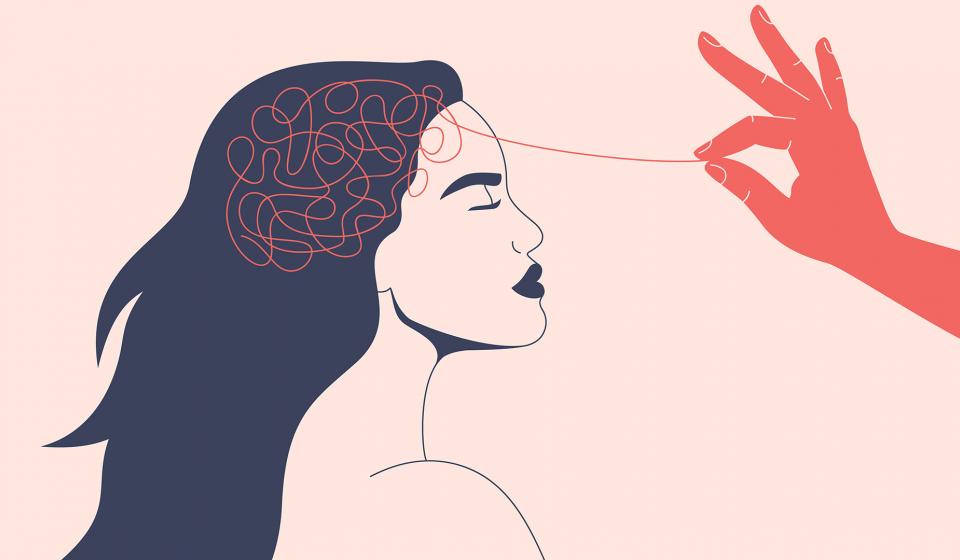Today, it only takes a thumb swipe during a social media scroll to find supportive discussions about mental health. But ten or even five years ago, the world was a less welcome place for such vulnerable discussions. Just the thought of disclosing a mental health concern, even among friends, was almost unheard of. Fortunately, the doors have opened for more open, kind, and accepting conversations about mental health beyond one’s immediate friend circle.
Schools, workplaces, and community groups commonly weave mental health considerations into their language. This change is great news for everyone, not just those with a mental health-related diagnosis. Using the right language is important to be both respectful of others and to avoid perpetuating mental health stigma. Here’s how to take a thoughtful approach as you audit your word choice to convey kindness, support, and understanding.
click here – eCom Shipping: Order fulfillment for businesses that can’t wait
1. Keep Your Language Person-First
You wouldn’t want to be introduced first by a descriptor instead of your name. Unfortunately, this insensitive language choice is used all too often when speaking about those with differing abilities and struggles. In more recent years, the campaign for person-first language has been more widely received, especially among the disability community. But people often forget that “invisible” diagnoses should be included in this grouping as well.
In speaking about mental health issues like depression, anxiety, and obsessive-compulsive disorder or OCD, keep your language human-focused. For example, your friend may have anxiety, but that’s not the sum of their being. She also is a mother, volunteer, and successful professional. Just like you are many things, so is she, so it’s not accurate to assign “anxiety” as her descriptor.
When the topic of anxiety comes up and it’s appropriate to mention your friend, focus on her, not the diagnosis. A great way to use person-first language would be – “My best friend manages an anxiety diagnosis.” Instead of leading with the mental health issue, you’re elevating your friend’s personhood before her diagnosis.
Identity-first language is the opposite of person-first language and should be avoided. This antiquated and disrespectful way of speaking is more common than you might realize. But once you know what to look and listen for, you’ll hear it everywhere. Phrases like “autistic person” or “depressed person” elevates the diagnosis before the human. Instead, focus on the person and let their descriptions follow, if and when they make sense.
click here – How To Choose Healthy Snacks For Your Children
2. Watch Your Adjectives
Slang terms can be fun to use, but how many of them poke fun at others’ very real battles? What once was acceptable in your youth can now be grouped into a slang term blacklist that keeps growing. But that’s not a bad thing. As a society, we’re becoming more sensitive to others’ lived experiences, and our language should mature with this expanded understanding.
It feels natural to say, “that’s so crazy,” or “I’m so depressed,” especially after a shocking story or major disappointment. But for someone who’s experiencing a very real mental illness, these sharp words can cut deep.
Take a step back and consider the adjectives you use throughout your conversations. If you’re not a writer by trade, you may not think about where adjectives land within your language. Adjectives add color and description to your nouns, enriching your sentences with depth. Work to ensure the adjectives you use truly enhance your story and are accurately helping you make your point.
Commonly woven into colloquialisms, certain terms or phrases become familiar and accepted, even if they aren’t kind. And when more people around you use them, it can be hard to decipher harmful language. As you become more aware of the mental health realities around you, pause before you speak. Chances are, there are even more clear and engaging adjectives to choose that color your language than popular slang.
3. Manage Your Tone, Delivery, And Filler Words
People who manage mental health diagnoses don’t need your pity, they need your empathy. And if a person around you has shared their diagnosis, it means you’ve earned their trust. Honor the information you’ve been entrusted with by treating it with respectful actions, words, and tone.
The significance of a mental health diagnosis shouldn’t be ignored, but it also shouldn’t be looked at like a tragedy. With support, therapy, and medication, many mental health issues can be managed. As more conversations spark about the importance of overall mental health, more people are taking proactive steps to do so.
That’s why responding to people, situations, or other information with insensitive reactions doesn’t have a place in respectful language. Responses like, “oh, that’s too bad,” or “I couldn’t imagine!” after hearing about a recent challenging mental health period can hurt. This pity-laden reaction places you above others with mental health issues, whether you mean to do so or not.
Instead, use your person-first language and thoughtfully-chosen adjectives to converse with the right tone. Acknowledge the information shared, but don’t sing-song an “aww” or tilt your head like you would toward a child. Instead, legitimize your conversation partner’s information with grace. Honor the mental health journey and the person on it before the diagnosis itself.
Encourage Others To Adapt Their Language
Old habits die hard, and adjusting how you speak is one of the most challenging default settings to shift. But because something is challenging doesn’t mean it can’t be done. As you improve your language to be more inclusive and empathetic, pass the gift along to others.
In conversations, use your newfound language skills with confidence. Others will take note, follow suit, and may even ask questions. If and when someone begins to use antiquated terms, confidently guide them to a better format. A teasingly-applied, “you’re so OCD!” may not intend harm, but the stigma it can perpetuate does. Encourage others to use the methods you’ve implemented and together you’ll improve the way we speak about mental health.









